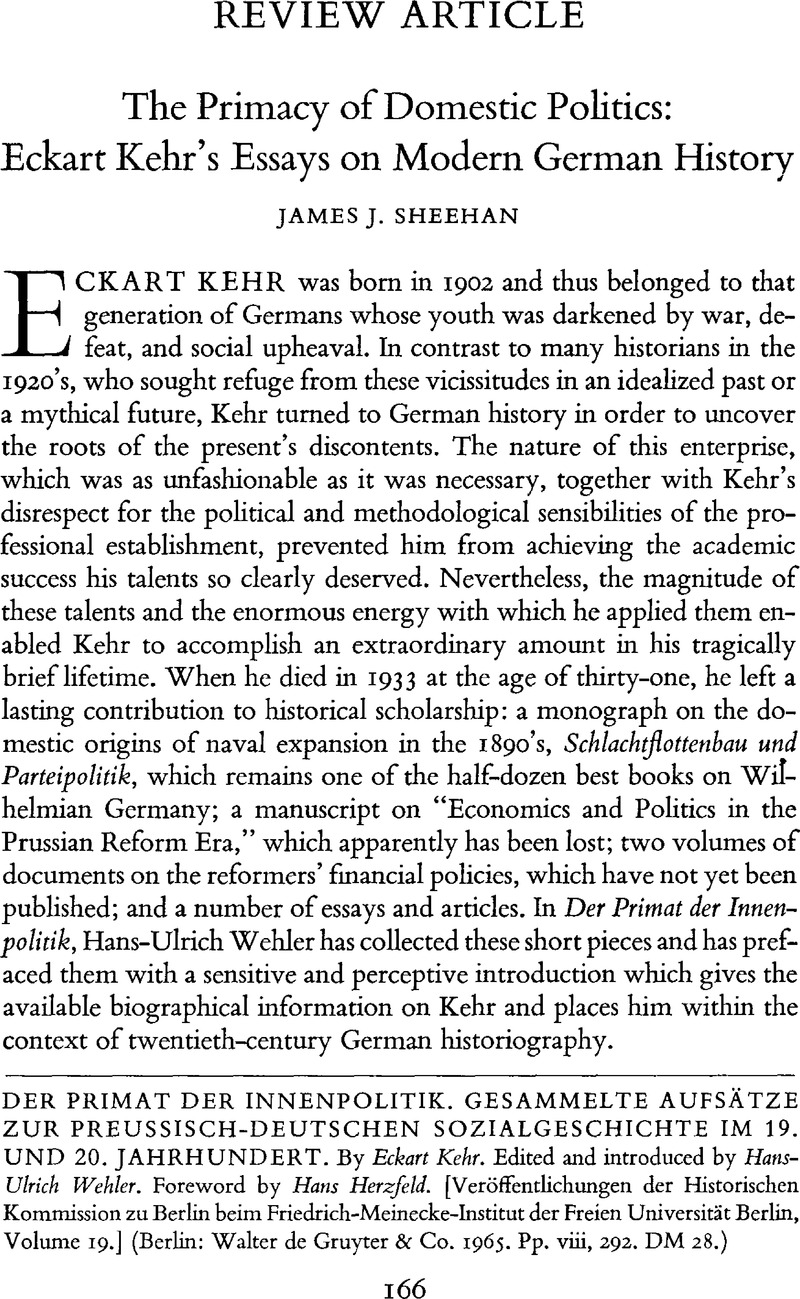Published online by Cambridge University Press: 16 December 2008

1. Kehr's most sustained discussion of the German historiographical tradition is his previously unpublished essay, “Modern German Historiography,” pp. 254–68.
2. Hintze's views on the relationship of the state and society can be found in his essay on “Das monarchische Prinzip und die konstitutionelle Verfassung,” reprinted in Staat und Verfassung: Gesammelte Abhandlungen (2nd ed., Göttingen, 1962), pp. 359–89. Needless to say, my comparison of Hintze and Kehr is not intended to denigrate the former's extraordinary contribution to our understanding of Prussian institutions.
3. Kehr stressed the contemporary relevance of his work in his essay on “The Dictatorship of the Bureaucracy,” pp. 244–53.
4. For hints of Kehr's hypothesis see the quotations from his letters given in Wehler's introduction (pp. 11ff.) and the fragment “Money and War in the Age of the Mechanical Revolution,” pp. 206–209.
5. Rosenberg, Hans, Bureaucracy, Aristocracy and Autocracy: The Prussian Experience, 1660–1815 (Cambridge, Mass., 1958)Google Scholar, and Koselleck, Reinhart, Preussen zwischen Reform und Revolution (Stuttgart, 1967).Google Scholar
6. Morsey, Rudolf, Die Oberste Reichsverwaltung unter Bismarck, 1867–1890 (Münster, 1957), pp. 262ff.Google Scholar; Rosenberg, Hans, Grosse Depression und Bismarckzeit (Berlin, 1967)CrossRefGoogle Scholar; and Böhme, Helmut, Deutschlands Weg zur Grossmacht (Cologne and Berlin, 1966).Google Scholar
7. See “Hatred of England and World Politics” and “The Problem of an Anglo-German Alliance at the Turn of the Century.”
8. Kaelble, p. 146.
9. See Puhle, pp. 155–64, especially p. 158, n. 94.